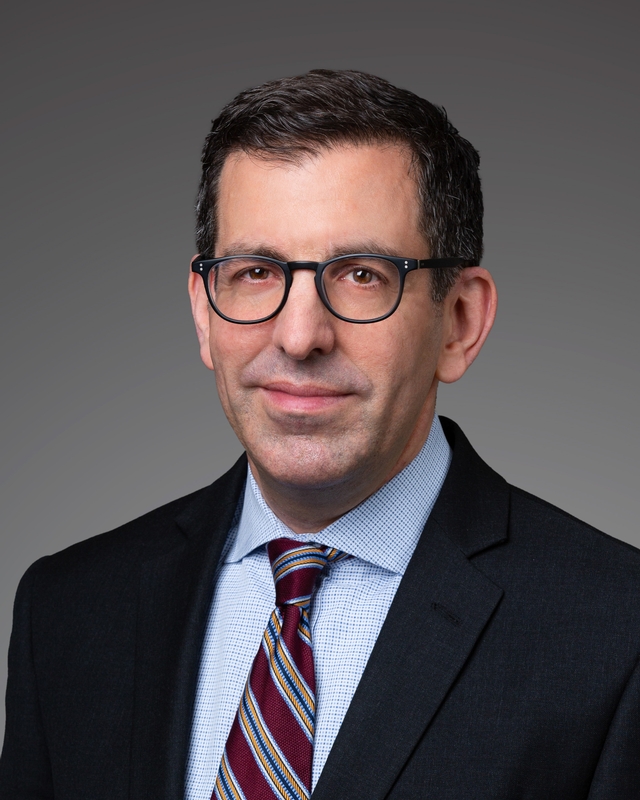News

04/07/14 | Firm News
Randall Fox, Recent Bureau Chief of the New York Attorney General’s Taxpayer Protection Bureau, Joins Kirby McInerney’s Whistleblower Practice
New York, April 7, 2014 - Kirby McInerney LLP announced today that it has enhanced its whistleblower practice by adding Randall M. Fox as a partner based in its New York office. Mr. Fox recently served as the founding Bureau Chief of the New York Attorney General's Taxpayer Protection Bureau, where he primarily prosecuted whistleblower actions concerning claims of fraud against the government.
While leading the Bureau, Mr. Fox focused on claims that the government was falsely deprived of funds with respect to procurement contracts, grant programs, pension fund investments, and tax obligations. In particular, he developed New York's whistleblower practice concerning tax violations following upon 2010 amendments to New York's False Claims Act that incentivized whistleblowers to report on large tax frauds.
Before his promotion to lead the Taxpayer Protection Bureau, Mr. Fox was a Special Assistant Attorney General in the New York Attorney General's Medicaid Fraud Control Unit. There, he handled whistleblower and non-whistleblower claims of healthcare fraud, including claims of overbilling, kickbacks, billing for medical services that were not provided, off-label marketing of prescription drugs, and false cost reporting that led to inflated charges.
Prior to joining the Attorney General's Office, Mr. Fox was a litigation partner at LeBoeuf, Lamb, Greene & MacRae, LLP, where he handled class actions and other complex cases concerning antitrust, consumer fraud, securities fraud and commercial disputes. He received his law degree from New York University School of Law and his undergraduate degree from Williams College.
At Kirby McInerney, Mr. Fox will be focusing upon whistleblower, healthcare, antitrust and consumer fraud matters.
“We are delighted to have an attorney of Randy's caliber joining the firm,” said David Kovel, the Kirby partner running many of the firm's whistleblower cases. “Randy brings with him years of litigation experience, particularly in protecting taxpayer dollars, and he has a proven track record for aggressively and successfully pursuing claims raised by whistleblowers. He will provide immeasurable value in areas where we are already strong and growing.”
Kirby McInerney is expanding its whistleblower practice at a time when federal, state and local governmental bodies are increasingly recognizing the value that whistleblowers can bring by highlighting false conduct that may otherwise not come to the attention of enforcers, and they are encouraging more whistleblowers by granting incentives for people with knowledge of frauds to come forward. Under the False Claims Act, whistleblowers who successfully claim fraud that victimizes the federal, state or local governments can receive between 15 and 30% of the recovery. Under the Dodd-Frank Wall Street Reform and Consumer Protection Act of 2010, whistleblowers can receive a percentage of monetary sanctions awarded when they report fraud to the Securities and Exchange Commission or the Commodities Futures Trading Commission. The Internal Revenue Service has a program that allows for whistleblowers to recover a share of tax monies recovered as a result of their submissions. In New York, claims of large tax frauds can be made under the State's False Claims Act.
While leading the Bureau, Mr. Fox focused on claims that the government was falsely deprived of funds with respect to procurement contracts, grant programs, pension fund investments, and tax obligations. In particular, he developed New York's whistleblower practice concerning tax violations following upon 2010 amendments to New York's False Claims Act that incentivized whistleblowers to report on large tax frauds.
Before his promotion to lead the Taxpayer Protection Bureau, Mr. Fox was a Special Assistant Attorney General in the New York Attorney General's Medicaid Fraud Control Unit. There, he handled whistleblower and non-whistleblower claims of healthcare fraud, including claims of overbilling, kickbacks, billing for medical services that were not provided, off-label marketing of prescription drugs, and false cost reporting that led to inflated charges.
Prior to joining the Attorney General's Office, Mr. Fox was a litigation partner at LeBoeuf, Lamb, Greene & MacRae, LLP, where he handled class actions and other complex cases concerning antitrust, consumer fraud, securities fraud and commercial disputes. He received his law degree from New York University School of Law and his undergraduate degree from Williams College.
At Kirby McInerney, Mr. Fox will be focusing upon whistleblower, healthcare, antitrust and consumer fraud matters.
“We are delighted to have an attorney of Randy's caliber joining the firm,” said David Kovel, the Kirby partner running many of the firm's whistleblower cases. “Randy brings with him years of litigation experience, particularly in protecting taxpayer dollars, and he has a proven track record for aggressively and successfully pursuing claims raised by whistleblowers. He will provide immeasurable value in areas where we are already strong and growing.”
Kirby McInerney is expanding its whistleblower practice at a time when federal, state and local governmental bodies are increasingly recognizing the value that whistleblowers can bring by highlighting false conduct that may otherwise not come to the attention of enforcers, and they are encouraging more whistleblowers by granting incentives for people with knowledge of frauds to come forward. Under the False Claims Act, whistleblowers who successfully claim fraud that victimizes the federal, state or local governments can receive between 15 and 30% of the recovery. Under the Dodd-Frank Wall Street Reform and Consumer Protection Act of 2010, whistleblowers can receive a percentage of monetary sanctions awarded when they report fraud to the Securities and Exchange Commission or the Commodities Futures Trading Commission. The Internal Revenue Service has a program that allows for whistleblowers to recover a share of tax monies recovered as a result of their submissions. In New York, claims of large tax frauds can be made under the State's False Claims Act.
Subscribe

